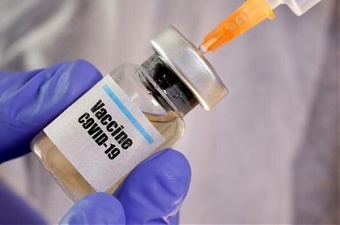Covid-19, EU – Baltic States, Legislation, Markets and Companies, Medicine
International Internet Magazine. Baltic States news & analytics
Tuesday, 24.02.2026, 12:31
EU Commission seeking to buy coronavirus vaccines in advance for EUR 2.7 bln
 Print version
Print version |
|---|
In order to support companies in the swift development and production of a vaccine, the Commission will enter into agreements with individual vaccine producers on behalf of the member states. In return for the right to buy a specified number of vaccine doses in a given time frame, the Commission will finance part of the upfront costs faced by vaccines producers. This will take the form of advance purchase agreements. Funding provided will be considered as a down-payment on the vaccines that will actually be purchased by member states, European Commission spokespeople said.
The related funding will come from a significant part of the 2.7 billion euro Emergency Support Instrument. Additional support will be available through loans from the European Investment Bank.
With the strategy published on Wednesday, the Commission will support efforts to accelerate the development and availability of safe and effective vaccines in a time frame between 12 and 18 months, if not earlier. Delivering on this complex undertaking requires running clinical trials in parallel with investing in production capacity to be able to produce millions, or even billions, of doses of a successful vaccine. The Commission is fully mobilized to support the efforts of vaccine developers in their endeavor.
The objectives of the strategy include ensuring the quality, safety and efficacy of vaccines; securing swift access to vaccines for member states and their populations while leading the global solidarity effort; ensuring equitable access to an affordable vaccine as early as possible.
The EU strategy rests on two pillars - securing the production of vaccines in the EU and sufficient supplies for its member states through advance purchase agreements with vaccine producers via the Emergency Support Instrument, additional financing and other forms of support can be made available on top of such agreements. Additionally, adapting the EU's regulatory framework to the current urgency and making use of existing regulatory flexibility to accelerate the development, authorization and availability of vaccines while maintaining the standards for vaccine quality, safety and efficacy.
When taking the financing decision on what vaccines to support, the following non-exhaustive criteria will be taken into account, including soundness of scientific approach and technology used, speed of delivery at scale, cost, risk sharing, liability, coverage of different technologies, early engagement with EU regulators, global solidarity, and capacity to supply through development of production capacity within the EU.
There is always a risk that supported candidates fail during clinical trials. This strategy is therefore similar to an insurance policy, by transferring some of the risks from industry to public authorities in return for assuring member states of equitable and affordable access to a vaccine, should one become available.
The EU is contributing to the global effort for universal testing, treatment and vaccination by mobilizing resources through international pledging and by joining forces with countries and global health organisations through the Access To COVID-19 Tools (ACT) Accelerator collaborative framework. The Global Coronavirus Response pledging campaign raised 9.8 billion euros by the end of May 2020.
A second step is underway in partnership with Global Citizen and other governmental and non-governmental partners, culminating in a global pledging summit on June 27.
- 28.01.2022 BONO aims at a billion!
- 26.08.2021 LLC Dizozols Investments finalizes investment attraction deal with Crowdestor with record-high profits
- 30.12.2020 Накануне 25-летия Балтийский курс/The Baltic Course уходит с рынка деловых СМИ
- 30.12.2020 On the verge of its 25th anniversary, The Baltic Course leaves business media market
- 30.12.2020 Hotels showing strong interest in providing self-isolation service
- 30.12.2020 EU to buy additional 100 mln doses of coronavirus vaccine
- 30.12.2020 ЕС закупит 100 млн. дополнительных доз вакцины Biontech и Pfizer
- 29.12.2020 В Латвии вводят комендантский час, ЧС продлена до 7 февраля
- 29.12.2020 Latvia to impose curfew, state of emergency to be extended until February 7
- 29.12.2020 Linde Gas открывает завод в Кедайняйской СЭЗ








 «The Baltic Course» Is Sold and Stays in Business!
«The Baltic Course» Is Sold and Stays in Business!

